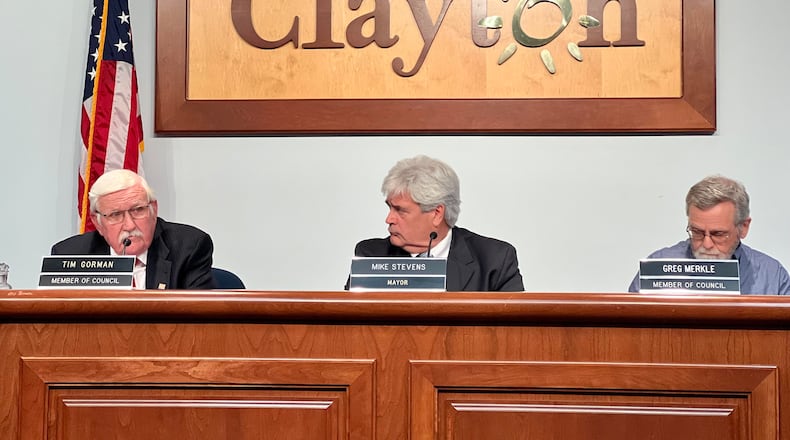If the measure passes, people who live in Clayton and also work within the city of Clayton, or live in Clayton and work in any jurisdiction without income tax, such as a township, will see their local tax bill increase.
City Manager Amanda Zimmerlin said the rate increase is needed to continue providing basic services to residents during a time when costs have risen across the board.
“Like challenges faced by other municipalities, expenses have been increasing across all departments and have now begun to outpace revenue,” Zimmerlin said this week. “This has led city council and administration to make tough budgetary decisions which may impact those vital services, including police, fire, public service, and administrative departments.”
Clayton residents currently get a 50% credit on their 1.5% Clayton city income taxes if they’re paying local taxes to another city. So according to the city, a family with $80,000 in taxable income would owe $1,200 in Clayton tax (1.5%), but would be credited half that amount and only have to pay the city $600 (on top of what they pay the city where they work).
If approved, the Nov. 7 ballot measure would change that to a 100% credit for taxes paid by Clayton residents to other municipalities.
Meanwhile, the city would see increased tax collections from people who work in Clayton but live outside the city, as their rate would simply increase from 1.5% to 2.5%.
Using the city’s example of a median family with $80,000 in taxable income, a Dayton Daily News analysis showed that if the measure passes, there are a range of possible outcomes depending on where that Clayton resident works.
If they work in Dayton (or another city with a 2.5% income tax), their total city income tax paid annually would drop by $600. If they work in Vandalia (2.0% tax), their total city tax annually would drop by $200. If they work in Union (or another non-Clayton city with a 1.5% tax), their local tax would rise by $200. And if they work in a township or Beavercreek (zero local tax), their local tax would rise by $800 per year.
“These funds are critical to continue to provide the services that our residents expect,” Zimmerlin said.
Zimmerlin highlighted the quality of life the city offers through its services.
“Clayton is consistently ranked as one of the safest cities in Montgomery County and one of the best communities to raise a family,” she said, referring to rankings published by outlets like Wallet Hub and the National Council for Home Safety and Security.
Along with continuing services, Zimmerlin said the tax rate increase would also likely allow the city to hire additional staffing in safety services and road maintenance.
About the Author


